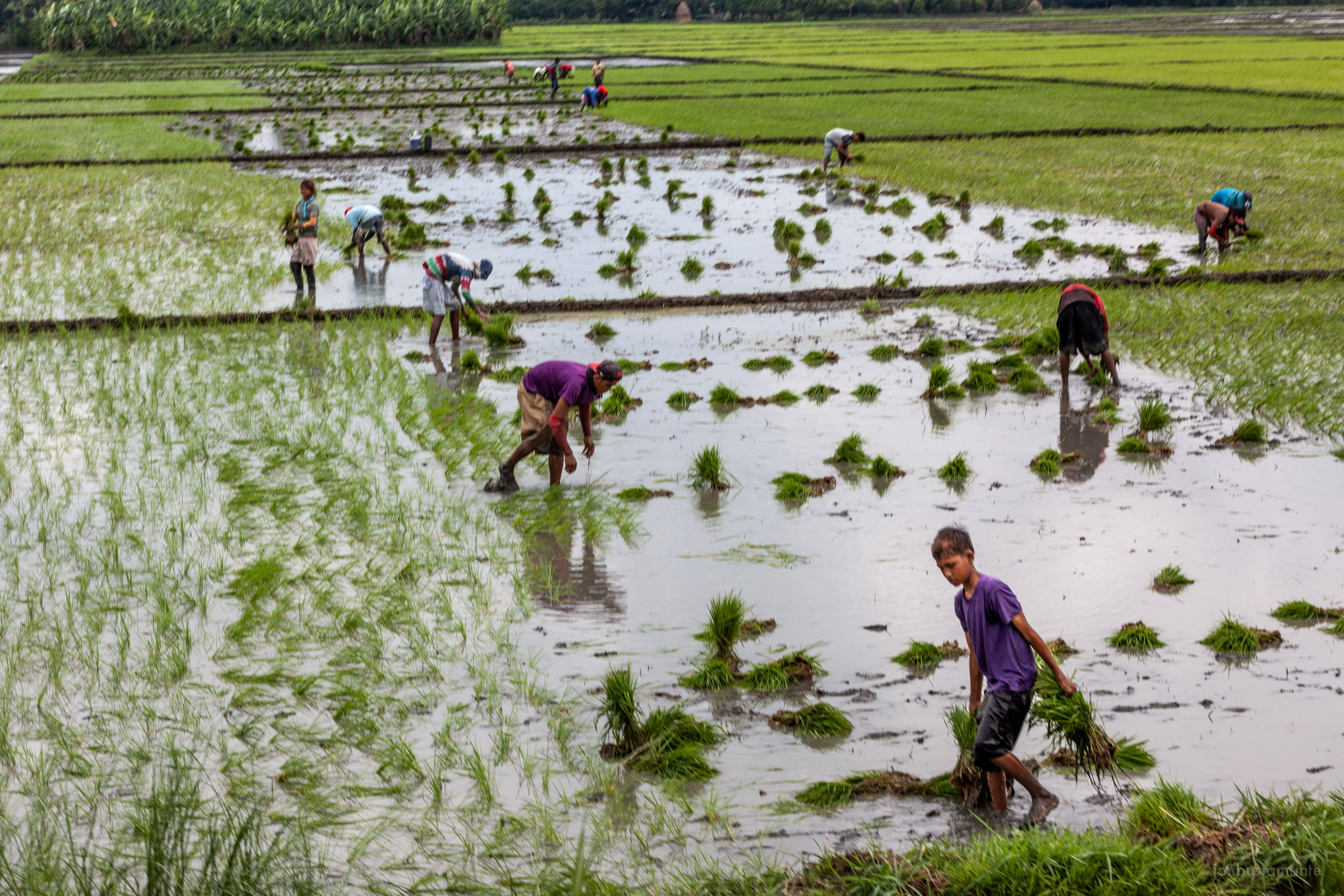NEWS RELEASE | November 15, 2018
Approval of rice tariffication ‘terrifies’ farmers
The Kilusang Magbubukid ng Pilipinas (KMP) today lambasted the Senate of the Philippines’ approval on third and final reading of the rice tariffication bill or Senate Bill 1998 that would impose tariffication on 35 to 50% tariff on rice imports in lieu of quantitative restrictions. “Next to China, the Philippines is now the world’s top 2 rice importer. Rice tariffication is the end of local rice industry as we know it, unless we fight and take the power back into the hands of farmers and food producers.”
“Despite the strong opposition of rice farmers and stakeholders in the local rice industry and agriculture, the government still signed the death warrant of the Philippine rice industry that is the rice tariffication proposal. We mourn for the Philippine rice industry, the millions of Filipino rice farmers and rice consumers that will face a mountain load of burden with the ultimate approval and implementation of rice tariffication,” says Danilo Ramos, chairperson of KMP.
“This government indeed has no regard for its people. Instead of improving and giving full support to the local rice industry and Filipino food producers, the government continue to allow the massive, unabated and unregulated importation of chemical and pesticides-laden rice imports from Thailand, Vietnam, India and other rice exporting countries. Rice tariffication will slowly kill us all. Pakakainin tayo ng gobyerno ng napakamahal na imported bigas na puno ng lason at mga kemikal,” Ramos said.
“Contrary to the government’s deceptive justification of the rice tariffication policy, imported rice supply is not necessarily cheap and safe. The expected tariffied landed cost of imported rice amounting to P36 per kilo will only be slightly lower than the prevailing local rice prices. However, if the global prices reach US$600 per metric ton, the tariffied landed cost would be P43 per kilo not including the hauling and transportation charges that will be added by traders and passed on consumers.
Take the power back through collective and organic farming
“Without state subsidy and support, Filipino rice producers stand no chance from cheap rice imports. The only way to fight back this government-sponsored rice tariffication and importation is through the strengthening of farmers’ organizations that will launch collective and organic farming activities,” Ramos said.
“Farmers must build and consolidate efforts, strengthen local peasant organizations and launch more collective farming that supports sustainable agriculture and organic rice production. We must assert Bungkalan, consolidate, defend and expand the scope of collective land cultivations. There are more than 2,000 traditional and farmer-bred rice varieties that do not need chemical-based fertilizers and pesticides from foreign agrocorporations. The production of hybrid rice that uses high-level of fertilizers and pesticides through the Green Revolution in the 1960s increased the cost of palay production and buried rice farmers in debt. It is high time that farmers do away with that vicious cycle,” the KMP leader said.
Imported rice are low quality, full of chemicals
“The rice imports being dumped into the Philippines by Vietnam traders are high-yielding but low quality, broken rice that was produced with more fertilizers and pesticides than the allowed levels. Such rice imports from Vietnam failed to meet international standards and were actually rejected by more demanding markets like China, US and EU but were accepted by ‘easy markets’ like the Philippines. By the end of 2018, Vietnam rice imports to PH will reach an estimate of 800,000 MT according to the Vietnamese Food Association. ###
Reference: KMP Chairperson Danilo Ramos, 0933-4646963




